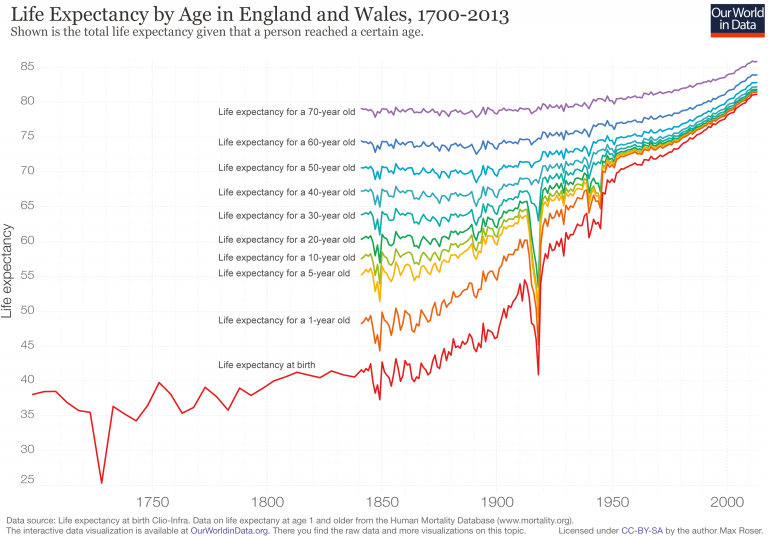Life expectancy at birth, historically, has been around 37 year or so. However, this is a bit misleading if you don't know how it's calculated. It's the mean expected age at death assuming that the current death rate by age cohort remains the same throughout your future. So if one person dies in infancy and the other lives to be 74, that gives you the 37 year life expectancy. Infant mortality was indeed much higher in the past than it is now; but that's not the whole story. Life expectancy for a one-year-old was indeed the approximately 45 years that I stated. People who died in infancy, obviously, would not have made it into the genealogy. On the other hand, some people did live into what we would today consider old age.
As it turns out, that mostly meant privileged men. Here we see that the kings of Judah, Greek philosophers, Christian church fathers and other elite men of ancient times who made it to age 15 could expect to get to Social Security age, though not much past it. Women, however, were not so lucky until about 1780. Probably a good deal of this had to do with maternal mortality. Today, women live longer than men.
The expectation we have today, that a full life is at least 70 years -- and really nowadays it's a bit more than that -- is extraordinarily different from what the human condition has been for most of our history.

This is from the Oxford site. As you can see we didn't really get there until the middle of the last century. (That big spike down around 1918 is WWI and particularly the global influenza pandemic. You can see a much smaller dip corresponding to WWII.) It's difficult to contemplate what life would be like if most people, even in young adulthood, didn't figure on getting much past 50. We take it for granted that the death of a 45 or 50 year old person is a tragedy, but for most of history it was pretty much the norm. Make of it what you will.
No comments:
Post a Comment